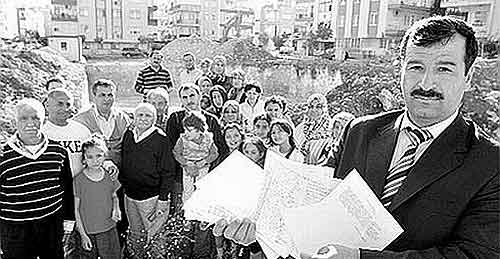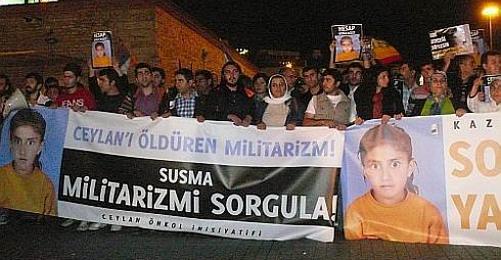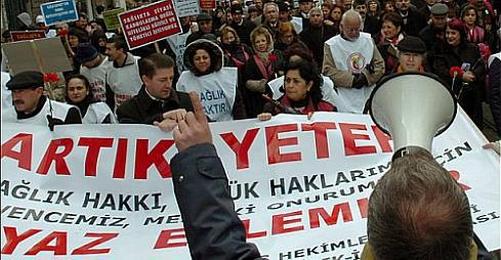In Antalya, a group of residents in a neighbourhood, together with their muhtar (neighbourhood official) wrote a letter of complaint about a women’s shelter that was supposed to be built in their area.
This has provoked questions about how people even knew of plans for such a building, which, by definition, should be in a secret location.
Only those most at risk find a space anyway
bianet spoke to Fatma Budak from the “Purple Roof” (Mor Çatı) women’s shelter in Istanbul, which is itself struggling for funding since the municipality has withdrawn support.
“There are only 52 shelters in the whole of Turkey anyway. That is why, while every women who experiences violence should have a right to a place where she feels safe, only those whose lives are at risk can currently be accepted at women’s shelters. And it is for exactly this reason, to save their lives, that the locations of these shelters must be kept secret.”
Principle of secrecy violated
Budak pointed out that although the Prime Ministerial circular on violence against women ordered the secrecy of women’s shelter’s locations, the Institute for Social Services and Child Protection (SHÇEK) did not follow this order in its procedures for “Women’s guest houses.”
Meltem Ağduk of the United Nation’s Population Fund (UNFPA), a sponsor of the shelter project in Antalya, spoke to bianet about the project.
She said that there were women’s shelter projects being carried out by the Ministry of the Interior’s General Directorate of Local Authorities in eight provinces in Turkey, supported financially by the European Union and technically by the UNFPA.
“The UNFPA is helping to develop the capacity of women’s shelters. However, the construction of the shelter is up to the construction company which wins the bid from the EU comission. And all those taking part in the project are given basic training. They are informed about women’s shelters.”
Revelation unethical
Ağduk particularly criticised the media for further adding to the revelation of the location of the shelter, saying it violated journalism ethics.
Budak added that not everyone involved in a project needed to know the address, or that “one person knowing the address does not mean that everyone needs to be told.”
International standards ignored for prestige reasons?
Describing international standards, she added, “As far as we know, women’s shelters are organised by independent institutions that receive government support. Generally places in the centre of town, flats or houses, are used, so that they do not attract attention. A shelter should have room around 20 people.”
She further questioned why, while the little money the Purple Roof had been receiving had been cut, there had been the need to build a huge complex in Antalya, adding a women’s shelter to a rehabilitation centre, a clinic and an old people’s home.
“The municipality could have used any existing building already owned by it, why did they feel the need for a new construction?”
She pointed out that such a “huge complex” inevitably attracted attention. This top-down mentality of showing off with the “huge women’s shelters we are building” had to be abandoned for women’s shelters with a feminist focus, she said. (EZÖ/AG)


















